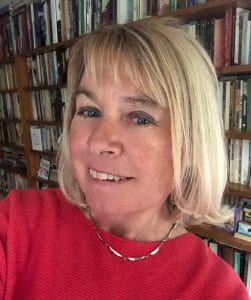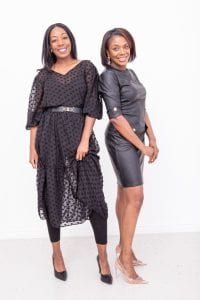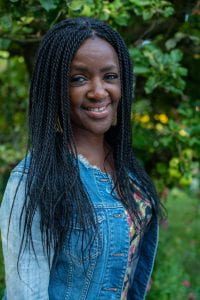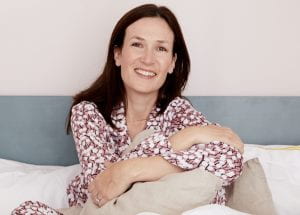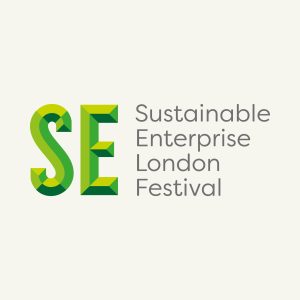Dr Martin Smith
Visiting Fellow in Creative Industries, Goldsmiths, University of London
The report of the enquiry into the state of the UK’s creative industries entitled ‘At risk: our creative future’ (parliament.uk) which was published on 17th January by the Communications and Digital Committee of the House of Lords, raises a number of interesting questions about Parliamentary lobbying and the role of university academics in influencing public policy. Leaving aside the hard-hitting nature of the report itself, four questions immediately come to mind. First, who was engaged in making representations to the Committee and thus influencing its recommendations? Second, is this kind of engagement generally effective? Third, is it worth doing beyond consideration of direct political outcomes? And, finally, will the representations prompted by this particular enquiry have any significant impact on government policy for the creative sector?
Who does it?
The report of the recent Lords enquiry is, in effect, a horizon scanning exercise on the future of the UK’s cultural sector and ‘creative industries’ and is monumentally ambitious, ranging in scope from IP protection and cultural exports to skills shortages and the impact of artificial intelligence on human creativity. The list of organisations which provided written evidence is instructive – a roll-call of the UK’s main creative sector trade associations, research entities and interest groups. The list includes pan-sector intermediary and research bodies (Creative UK and the UKRI-supported Policy and Evidence Centre (PEC) respectively), industry-specific trade representatives (for example the Design Council and the Advertising Association) as well as public funders (Arts Council England), training bodies (ScreenSkills) and one internet platform (Patreon). Submissions from arts-heavy universities sit alongside others from research councils, individual academics and a prominent trade union (Equity). The missing dimension in this panoply of representation is primarily financial and commercial: there are no submissions from banks, venture capitalists or other investment firms, for whom such activity is never an operational corporate priority in an arts-related or creative sector policy context.
Parliamentary Select Committees usually take oral evidence based on the perceived quality of written submissions. The most interesting (or perhaps opinionated) evidence providers are invited to be cross examined by members on the Parliamentary record. This has become an important and competitive process for universities and academics within the framework of the ‘public engagement’ agenda (although few of us could ever compete dramatically with Ai-Da the robot artist who, accompanied by her developer Aidan Mellor, gave stunning ‘evidence’ to the Lords enquiry on 11th October 2022, a Parliamentary first). Committees then draw on the written and oral evidence provided to them in making their analysis, reaching their conclusions and forming recommendations before sending their reports for official publication.
Is it effective?
An earlier generation of scholars in the disciplines of politics and public administration, with Professors Jeremy Richardson (Oxford) and the late Grant Jordan (Aberdeen) prominent amongst them, put the subject of ‘lobbying’ firmly on the academic map in the 1980s and 1990s, supported by the Political Studies Association and other professional associations and specialist journals.
From a practitioner’s perspective (I previously worked as a Parliamentary lobbyist for the National Consumer Council and subsequently ran a commercial lobbying company), this issue of effectiveness nonetheless remains problematic. The policy-influencing and legislative context is complex and highly variable depending on the specifics of election outcomes, voting numbers and control of Parliamentary business. Crucial distinctions must be drawn between the purpose and processes of Public Bill Committees (in examining draft legislation) and Select Committees (in scrutinising the work of government), between primary and secondary legislation and between the procedures and debating styles of the two Houses of Parliament, which are quite different.
Two general observations apply. First, the high-minded pursuit of research-driven, evidence based policy-making remains an arena of intense frustration for academics, think tankers and other interest groups alike. When it ‘works’ (which might crudely be expressed as excellent research plus high level lobbying delivers successful result/new intervention/change in the law) few experiences are more satisfying. I’ve seen this at very close quarters on issues as diverse as unsafe imported childrens’ toys (banned by means of a Private Member’s Bill in 1986) and the introduction in finance legislation of the UK’s animation tax credit (in 2013, which staunched an exodus of British talent to Ireland and Canada). But far more frequently such successful outcomes are not achieved for one or other of many reasons, including conflict with Treasury or Cabinet Office policy orthodoxy, poor tactics, wavering ministerial commitment, lack of Parliamentary time and filibustering.
Second, most lobbyists tend greatly to overstate their influence. In my experience this judgment applies equally to pressure groups, trade associations and independent commercial lobbyists – it goes with the territory. The most effective lobbyists are often people you never hear about: they have the good sense to stay out of the bragging game even though that may not help in drumming up business.
Is it worth doing?
We live in a click-driven age characterised by the ubiquity of SurveyMonkey and the dictates of the marketing team. In universities the requirements of REF procedures ensure that this is an operating environment in which academics must engage. Research reports and ‘impact’ studies flood policy-makers’ desks with terrifying regularity. It sometimes appears that the authors of these reports are reluctant to distinguish between outputs (as many as possible) and outcomes (achieving substantive changes to public policy – very rare) because of the nature of the incentives in place. This can distort any hard-headed understanding of the meaning of ‘evaluation’. In the Parliamentary world, by contrast, ‘success’ and ‘failure’ are more easily determined. When I worked in the Committee Corridor of the House of Commons promoting consumer-driven amendments to government bills, I was acutely aware on a daily basis that there is a profound difference between ‘feeling good’ about one’s work and achieving objective change.
Equally, in the Parliamentary context, any assessment of the role of Select Committees in taking evidence and influencing policy must be finely nuanced. The brutal fact is that hundreds of Parliamentary reports, many of them excellent, gather dust and deliver nothing by way of policy change. But this, arguably, is to take too narrow a view of impact as regards the evolution of the policy environment. Returning to the specific context of the current Lords enquiry into ‘At risk: our Creative Future’, the Committee has performed a great public service by amassing a large body of up-to-date evidence on the condition and prospects of, and challenges faced by, the UK’s creative sector, all of it publicly accessible. A number of academics, from ICCE and elsewhere, have made authoritative contributions to sit alongside those made by industry representatives, ministers and officials. So yes, therefore, for academics it is worth making the effort to engage in their wider role as public intellectuals.
Such Parliamentary representation may not always deliver direct policy outcomes, but at its best it can profoundly change the business environment and deliver indirect impact. A particularly good example is provided by the work of the Culture Select Committee in the lower House on music streaming and artists’ remuneration. This work is widely regarded as definitive: although it has yet to deliver concrete changes in the market for music rights and improvements to artist remuneration, it led directly to an investigation by the Competition and Markets Authority (CMA). The policy and commercial environments in which these matters are negotiated has, by general consent, been radically transformed over a two year period as a result of the Committee’s work.
Outcomes of ‘At risk: our creative future’?
One distinguishing feature of Lords Select Committees is that they are generally more expert and thus more incisive than their Commons equivalents. The membership of the Communications and Digital Committee includes a former Culture Minister (Lord Vaizey), a former Director General of the BBC (Lord Hall), a former ballet dancer and creative director of the Royal Opera House (Baroness Bull) and the current chair of publishing firm Random House UK (Baroness Rebuck), amongst others. It is chaired by Baroness Stowell, herself a former BBC Head of Corporate Affairs, who has sought to position the Committee’s new report as an input into another, more high profile and consequential document, also due out later this year (March 2023), in the form of a ‘Sector Vision’ for the creative industries to be published by the government in collaboration with the Creative Industries Council (CIC), chaired by Sir Peter Bazalgette.
The publication of this ‘Sector Vision’ has been much delayed due to last year’s political turmoil, ministerial turnover within the lead government department, the DCMS and, allegedly, disputes between ministers in DCMS and BEIS (the industry department). Its contents have been partially trailed by Sir Peter himself in oral evidence to the Lords’ enquiry, but its wider substance is eagerly anticipated, not least because Sir Peter was himself the principal author of an influential report on much the same subject matter in 2017.
By the end of winter, with both reports then in the public arena, we should be in a better position to judge who is influencing whom and also the answer to a particularly fascinating policy question: how does a ‘Sector Vision’ for the creative industries differ from the ‘Sector Strategy’ published by the last government in 2018?
MS
